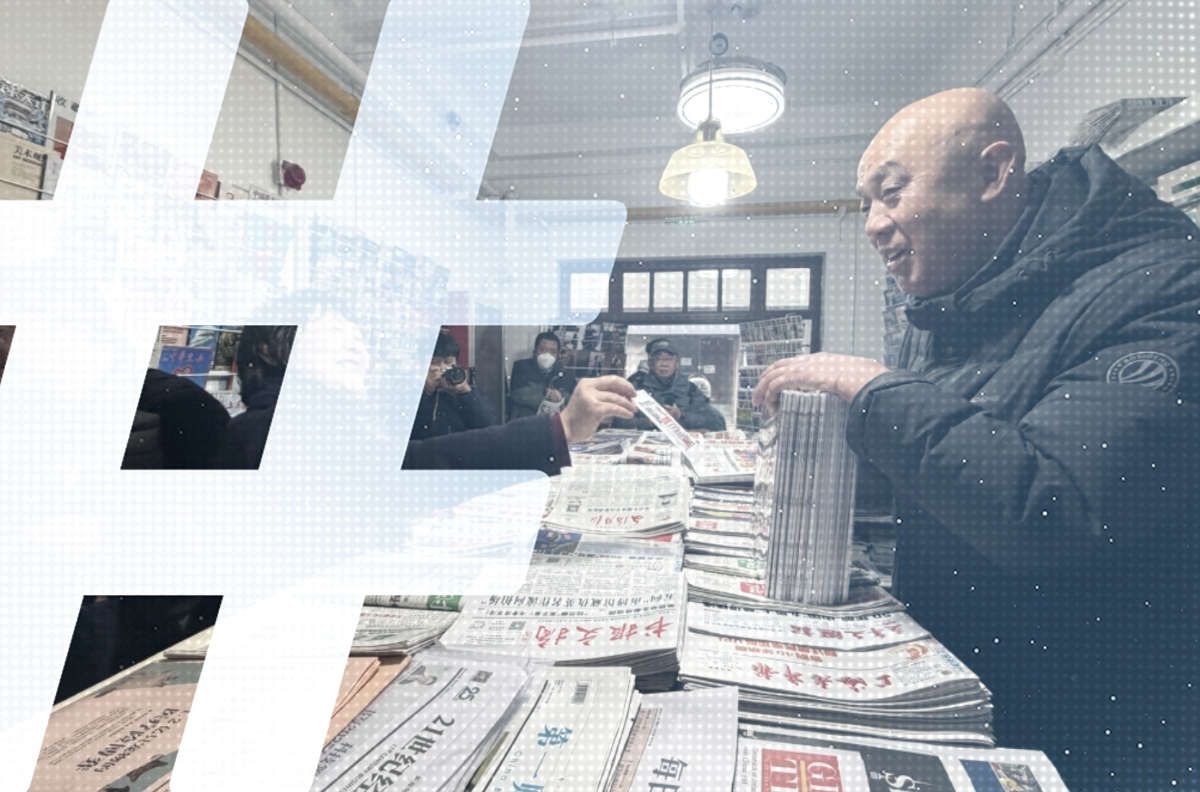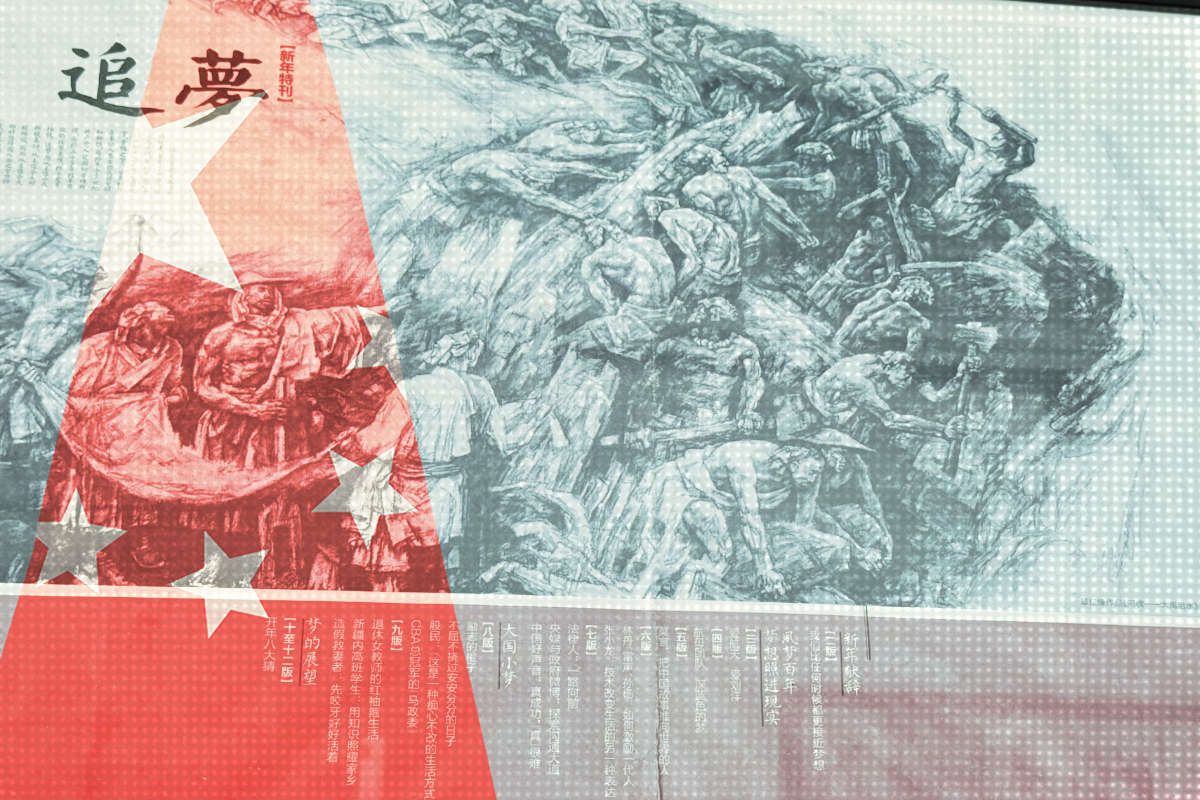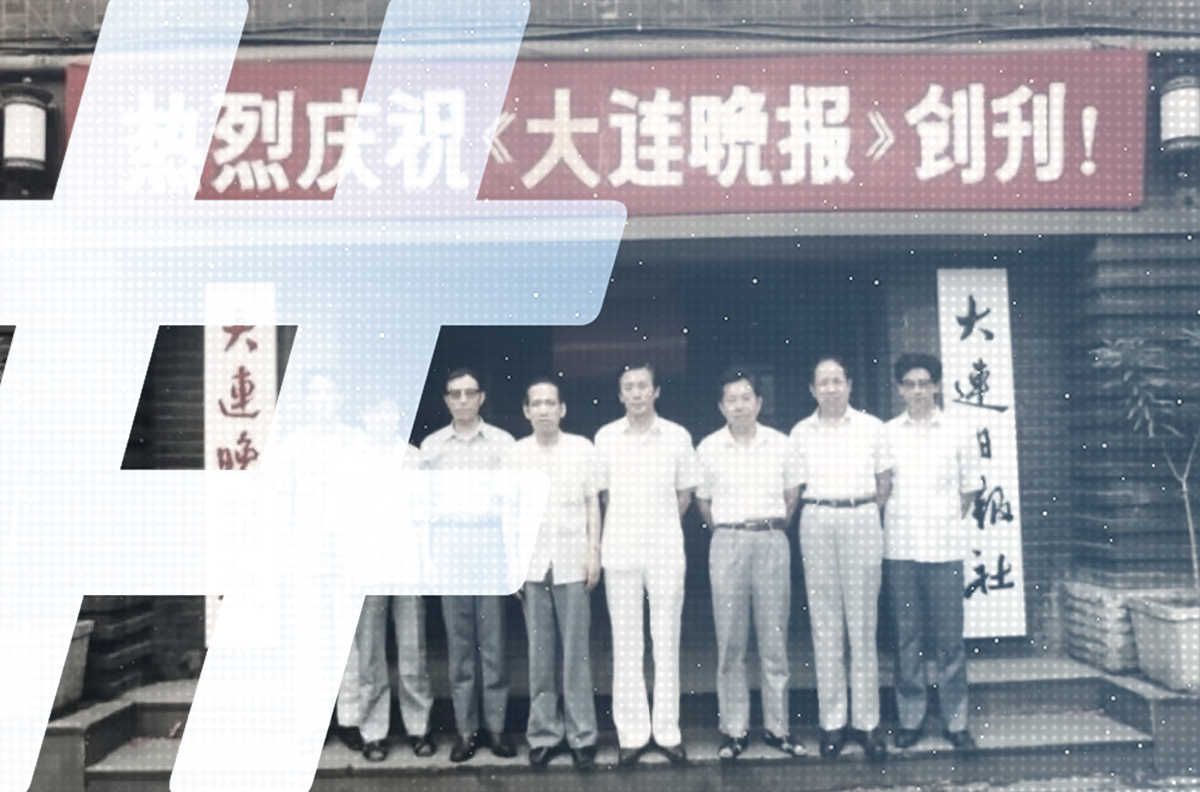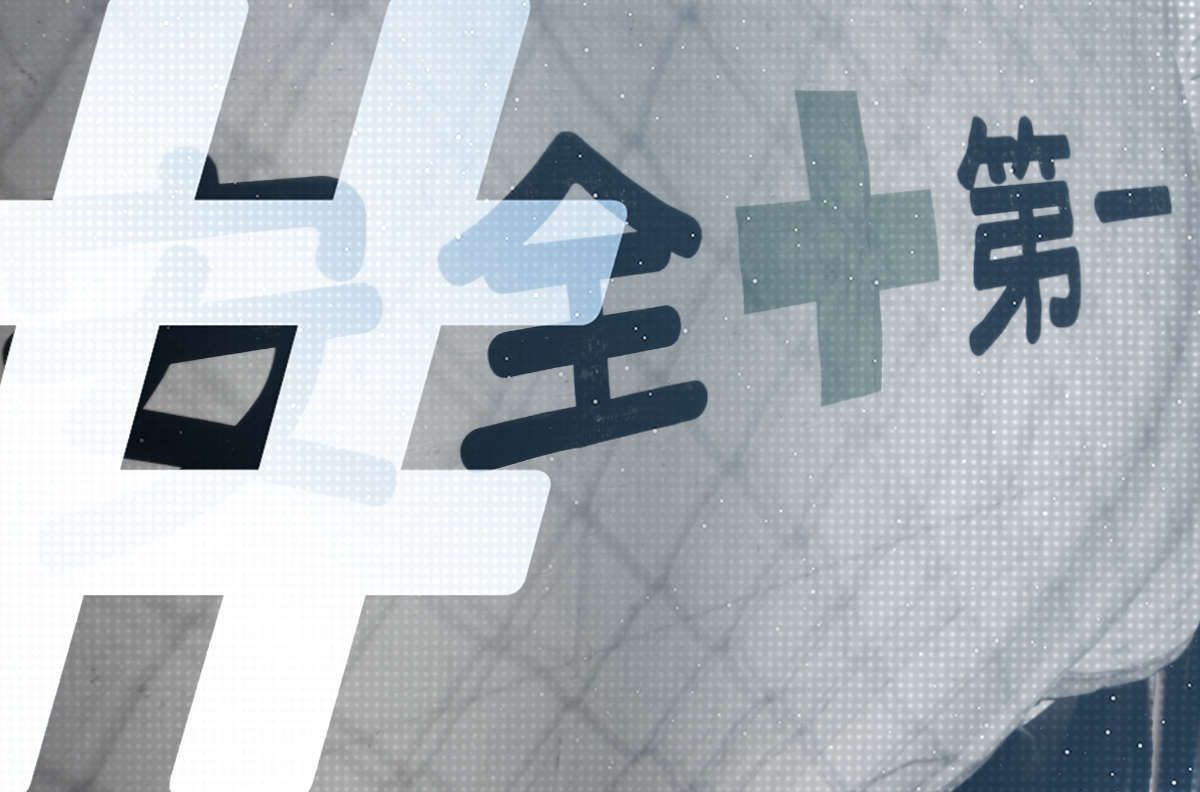In September last year, as China saw a series of media scandals, we ran several articles addressing the phenomenon of media corruption. We refer readers back to “Who Warped China’s Media?“; “China’s Corrupt Media“; and “Why News Extortion is So Hard to Uncover.”
Today we offer an excellent follow-up on the issue from one of China’s most knowledgeable media scholars, Foreign Languages University professor and former CMP fellow Zhan Jiang (展江).
Back on October 22, 2014, Zhan Jiang took part in an online discussion at 21ccom.net about media corruption, its causes and possible solutions. The website published the full text of Zhan’s interview yesterday.
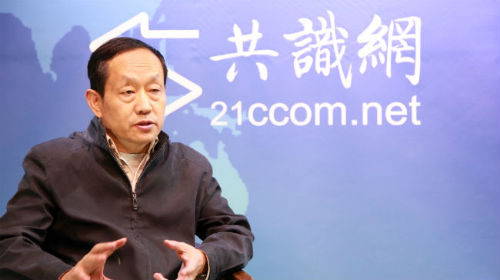
As much discussion of media corruption inside China centers on rotten journalists, as though the only relevant dimension is moral, Zhan Jiang’s interview is refreshingly frank. He explains why media corruption is endemic and, you might say, institutionalized.
We’ve translated only about half of the interview, but we strongly encourage readers of Chinese to study the rest.
Host: Hello everyone, I’m 21ccom.net editor Jiang Baoxin (蒋保信). I’m also the hosts of today’s conversation. Hello, Professor Zhan. This is the second time you’ve been a guest in the studio at 21ccom.net, isn’t it?
Zhan Jiang: That’s right. It’s been two or three years since the last time.
Host: After we pre-announced this online discussion, we promoted it on our WeChat public account as well, and web users submitted many valuable questions. Today we’d like to seek your expertise on these questions, which I’ve gathered today along with my own questions. Why don’t you first say hello to our web users.
Zhan Jiang: OK. Hello, everyone. 21ccom.net is a very influential sit for gathering social consensus and sharing ideas, and I’m really honored to be your guest.
Host:Looking back on the last couple of years, I think we can say it has been quite an eventful period for the media. If I can use one phrase to sum up my own feelings, I think it would be “a land of wailing and despair.” This has to do, I think, with the Chinese media’s own problems, and also with the larger backdrop of [China] in transition. I think this is a good time, Professor Zhan, to have you speak on the theme of “The Troubles Facing Chinese Media, and the Way Out” (中国媒体的困境和出路).
China Leads the World in Media Corruption
Host: In 2014, the anti-corruption drive advanced into the media. First, we saw an investigation into CCTV2, with Guo Zhenxi (郭振玺), Rui Chenggang (芮成钢) and others being arrested. After that, we had the investigation into the 21st Century Business Herald, where erstwhile angels of professional journalism became prisoners. This was a great shock to media colleagues. One of the major social roles of media is supervision, but we see that China’s media itself has become a corruption disaster zone (腐败的重灾区). What happened?
Zhan Jiang: First of all, media corruption is an outgrowth of political corruption and commercial corruption. A general level of corruption persists in our political and commercial cultures, and so the media cannot be the exception.
Specifically, corruption in China’s media also has to do with the pressures and challenges brought on by new media. And it has to do with the problems facing journalists themselves. For example, is it corruption for journalists to accept red envelopes? Even though everyone accepts red envelopes, this too is a form of corruption. And so, if we talk about the intrinsic and extrinsic reasons for corruption, there are many.
However, regardless, the level of corruption in China’s media is staggering. How staggering exactly? Search across the world and I’m sure you won’t find another country facing media corruption as serious as what you find in China. To be a bit less polite about it, China’s leads the world in media corruption.
Two Forms of Media Corruption: Collusion and Extortion
Host: How do we we see this corruption manifesting?
Zhang Jiang: From what we’ve seen exposed most recently, we’re talking chiefly about corruption that involves blackmail. This is about using the pressure of a prospective news report to squeeze economic benefit from the other side. In the past this was exercised in a subtle way. Later, it became explicit.
This sort of blackmail happens as companies take out advertising in the newspaper [in order to stave off negative coverage]. Or in some cases it means media establishing “strategic cooperation partnerships” (战略合作关系) with local [governments and/or companies]. In fact, this is little more than a [mafia-style] “protection fee” (保护费). Commercial enterprises and local government exchange economic benefits in order for the media to abstain from negative reporting on their activities, or negative editorials. Sometimes it even means deleting negative posts from internet users on various online media. This is what we can call extortion-style corruption (勒索型腐败).
Judging from recent events, it seems that this extortion-style corruption is particularly serious in China — and its easier to expose. When there is a particularly severe conflict between the extorter and the extorted — for example, you extort money from me [as a hush fee] — and afterward I find a way to expose this fact.
But there is another type of media corruption that is harder to expose, but its consequences are at least as severe. I call it collusive corruption (勾结型腐败). The traditional way is to demand from you an “open-mouth fee” (开口费). I do positive propaganda for you, filing a story for you, or I get you on the TV screen in exchange for some sort of favor. This sort of collusion is also shocking, but it’s far more difficult to detect, because it generally happens through private exchange, and both sides in the exchange benefit. It’s difficult to expose.
Collusive corruption is different from extortion-style corruption in the sense that it tends to happen at more powerful media. More vulnerable media, like weaker small Party media, industry publications — few people read these anymore. Their circulations and ability to attract advertising are very weak. Who is going to seek them out? Those who want to be seen in the media are naturally going to opt for powerful official media, especially state media. And of course they may also choose more powerful regional media. These days when we see “positive propaganda” (正面宣传) being done in the media that is not at the behest of senior Party leaders, there is very often corruption involved. The media accepted payment from them. . .
When we look at media corruption [in China], we have to look at both types of corruption.
We Must First Punish Media Personnel Involved in Illegal Acitivities
Host: Corruption in China’s media isn’t a matter of one or two bad apples, isn’t that right? It’s systemic.
Zhan Jiang: That’s right. Without question it is corruption for reporters to accept red envelopes, but this isn’t the most serious. In China, which do you think is greater, the number of journalists who take red envelopes, or the number of journalists who don’t? Right now, the journalist who doesn’t take the red envelope is seen as somehow unusual. And in some places, media bosses understand that journalists will accept red envelopes as a matter of course, and so they’ll factor red envelope money into their basic pay. A few years back I heard the female editor at a television station in the capital of a certain northwestern province say that their wages weren’t very high, only about 3,000 yuan per month, but their media bosses knew that every month they would be accepting red envelopes on the job. They considered that every red envelope would contain around 400 yuan, so five red envelopes would come to 2,000 yuan. So they logged their actual wages as 5,000 yuan.
Today, if we want to deal with the problem of media corruption, the difficulty is immense. Generally speaking, most journalists probably will not go and carry out news extortion. But for them, accepting red envelopes is nothing. Everybody does it. Changing this habit is very difficult. I hope that in dealing with media corruption, we first punish those media personnel carrying out illegal activities, and then move toward greater regulation in the industry. But of course this has to be a process.
Host: So is it a Chinese thing for reporters to accept red envelopes?
Zhan Jiang: Yes. It’s ordinary for journalists to receive red envelopes when attention a news conference, and journalists will accept free travel as well, which is something not permitted in American or European media. Of course, in Western media history, there were cases of journalists accepting “red envelopes” or some such thing, but in these cases they were severely criticized, because it is generally believed that this damages the reputation of the media . . .
As I understand it, in Western countries journalism wasn’t a very high paid career from the start, and so most people were mentally prepared for this before they entered the industry. If the income level wasn’t something you could accept, you didn’t choose this profession. In Britain, the United States, France and Germany — in none of these countries are journalists paid high salaries. Perhaps only Japan is the exception, where journalists do earn high salaries. In comparison, I think the average income of journalists in China is probably somewhere in the middle, not high and not too low.
I once asked a French journalist why anyone would want to be a journalist when the wages were so low. He joked that with the global economy being so bad he was happy to have a job at all. Then he said: In France, we think journalism is an interesting profession, and so it’s OK if the pay is lower [than for other professions].
Host: What ideas do you have about how to solve the problem of media corruption in China?
Zhan Jiang: As I’ve said before, media corruption in China is tied up with political and commercial corruption. In fact, corruption exist in many sectors of Chinese society — including healthcare and education. So dealing with media corruption isn’t an isolated matter. Fortunately, China’s anti-corruption drive is going well, and corruption is being targeted in politics and business.
Corruption is an interconnected chain, with links among various industries and sectors. There is a tight relationship between business and the media, and so if corruption can be combatted in the business sector this will help to restrain media corruption to some extent. That’s the larger perspective.
In terms of specifics in the media, I think some of the following things can be done.
First, there should be an exit system for media. If a certain media doesn’t suit social demand, if it cannot attract and audience and advertisers, then it should fold.
Not having an exit system is a major problem. I’ll give you an example. There is a certain industry publication that has been mentioned repeatedly over the years by the General Administration of Press and Publications because of its news extortion activities.
To put it another way, this newspaper relies on blackmail to survive. If it didn’t conduct itself this way where would the advertising come from? And how would it support its large newspaper staff? But the paper has not shut down. Why? Because its sponsoring institution (主管部门) is a certain department of the State Council. As the paper was being disciplined, the department sprang into action to successfully save the paper. Ultimately, the punishment against the newspaper was to refer the head of its Henan bureau to the justice system. China Central Television even did a program about this earlier this year. It was called, “The Secret of a Press Station” (记者站的秘密).
This is a specific case of systematic news extortion. But because there was no exit system [for this government-backed newspaper], the paper was ultimately allowed to live through a process of sacrificing the pawn to save the queen. And how will it survive from now on? Will it continue to extort money with the threat of news reporting? Must the state financially support such a publication?
There is no way, in fact, that the publication will be able to rely on state support. Because only a handful of official media, like the People’s Daily, Xinhua News Agency and a number of treasured Party publications, are now able to receive support. For those more peripheral official media that no longer have a place, the only possibility is an exit system. Under the current tough situation facing even the most competitive of media, they have no choice available to them other than extortion.
Therefore, we must build an exit system [for media like this]. Actually, the former head of the General Administration of Press and Publications, Liu Binjie (柳斌杰), floated this idea quite some time ago, of letting the sun set on those media that are no longer relevant. This is the right idea. But this idea can’t be implemented, because media are still regarded as primarily an ideological industry (意识形态产业), having their own special function [aside from profit and sustainability], and for the sake of this function — and the interests of certain government departments — it’s very difficult to shut these media down.

